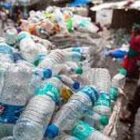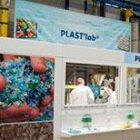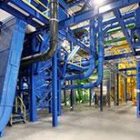LUXUS RECEIVES GRANT TO BOOST PLASTIC RECYCLING
The U.K.-based plastics recycler Luxus has been awarded a grant of £600,000 (US$907,000) from the European Union to commercialize its Hycolene range of lightweight polypropylene (PP). The plastic contains as much as 60 percent recycled content.
Luxus is targeting the European automotive interior trim market with the Hycolene product. The plastics recycler says the investment will increase the sales potential for its lightweight PP range and enable the European auto industry to increase its use of recycled-content polymers to satisfy both end-of-life (ELV) and increasing emissions targets.
Luxus will be collaborating on this project with the Stuttgart, Germany-based screw manufacturing firm Coperion to help with processing, tier 1 molding supplier IAC for materials trials and the auto manufacturer Jaguar Land Rover (JLR), which will provide end user guidance on the project to ensure the technical requirements are met, allowing exploitation of this technology in future auto applications across the industry.
By January 2015 the European auto industry is required to reuse and recycle 85 percent of the vehicle’s weight. Additionally, car companies are requiring suppliers to meet higher standards to improve the scratch resistance, provide greater stiffness and reduce the total weight of the car to improve efficiency.
Peter Atterby, Luxus’ managing director, says, “We’re pleased that the commercial potential of our Hycolene range has been recognized by the EU. This investment will enable us to effectively make a fundamental step change in our technology as we aim to replace our filled compounds with next generation reinforcing additives.”
Atterby continues, “These additives offer excellent tensile properties that don’t detract from the appearance of the molded compound, yet their adoption reduces weight by up to 12 percent per part and significantly improves scratch resistance to meet industry standards.”
He also says the new grades will offer a lower density than is currently provided, while still delivering up to 60 percent recycled PP. This means that tier 1 molding suppliers should be able to produce more parts per metric ton of the material, offsetting what is likely to be the slightly higher price for the grades.
A potential barrier for Luxus until now has been how to scale up its Hycolene grades using the existing infrastructure. Due to the grant money, Luxus has been able to purchase a new twin screw co-rotating extruder. This will enable the business to optimize the materials properties demanded for this project and at the same time ensure the expected tonnage is achieved.
At full capacity Luxus expects to gain a 2 percent share of the EU interior trim market by 2016.
Peter Atterby continues, “The success of this project isn’t down to just technology and expert knowledge alone. We believe that sustainable polymer technology has come of age, its performance is the same as virgin and therefore it should be priced the same—this is our message for Europe’s auto industry.”
Luxus also offers specialized closed loop and open loop recycling services to manage end-of-life post-industrial and consumer waste for the retail transit packaging, construction and local authority wheel bin markets.





